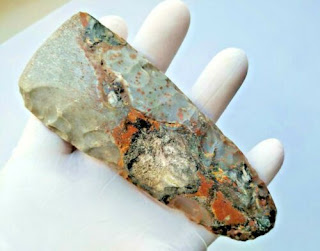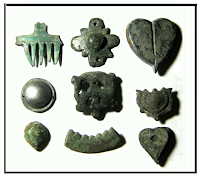1.0 Introduction

What price a piece of the past in your hand? ( Photo: eBay ) For some time now in Britain archaeologists, artefact collectors and the media have been talking of "responsible artefact hunting" (often in the form of "responsible metal detecting"). The resource, arranged in the form of a blog, is about this concept. What is responsible artefact hunting? It is argued here that this should be seen above all from the point of view of avoiding damage to the archaeological record. The Code of Best Practice for Responsible Metal Detecting in England and Wales sets out some of the basic principles, and in its fourth section it says that "being responsible means ...finding out about archaeology". Obviously the artefact hunter cannot take responsible decisions by perceiving the potential archaeological effects of their activities without that understanding. The 'Code' itself however, cannot help gain that understanding. It is formulated merely as ...
